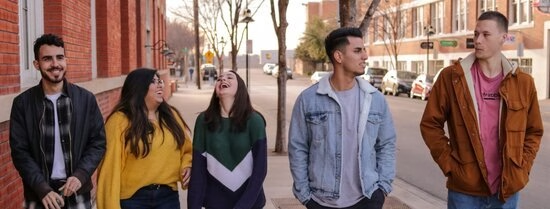Researching the development of the adolescent brain
How do adolescents develop into individuals who contribute to society? Which circumstances support young people and where do the challenges lie? We investigate these questions together with other scientists, social partners and last but not least, young individuals.
Society, youth and science
In the Erasmus SYNC lab, we investigate the dynamic development of the adolescent brain. We want to understand how young people become engaged citizens in society. In our research, society, youth and neuroscience are inextricably linked together. SYNC therefore stands for Society, Youth and Neuroscience Connected.
The Guts of the Neuroscientist: The Brain of Young People & the Power of Intuition
In this Ammodo Doc, neuroscientist Eveline Crone argues that intuition is worth studying and embracing. In her scientific career, her own gut feeling often led her to new insights.

Eveline Crone talks about her research with young people in Rotterdam-Zuid

Why we should listen to young people

Click on one of the banners to read more about our ongoing research projects
Prosocial behaviour
Essential behavior to establish and maintain social relationships
Self-concept
Adolescents develop more complex views of themselves and become more sensitive to other opinions
Social competence and environment
Exploring why children are not similarly responsive to changes within the social environment
Wellbeing during the COVID-19 pandemic
To what extent are adolescents willing to contribute to wellbeing in their immediate environment
Antisocial behaviour
What factors determine whether or not young adults change their antisocial behaviour
Brain and behaviour development
Research into behavioural and neural changes from childhood to adolescence into adulthood
Our way of doing research
Interdisciplinary research
The researchers at the Erasmus SYNC lab believe in interdisciplinary research and therefore collaborate with researchers from the social sciences, life sciences and humanities, among others.
Societal partners
Collaboration with social partners improves the quality of science. That is why youth panels, schools and co-creation teams are involved in our research.
Open Science
We embrace Open Science. Together we provide the scientific building blocks needed to shape a better future for the current and later generations of young individuals.
Diversity and inclusion
At the Erasmus SYNC lab, talent and skill lie within our foundation and here, diversity is of added value. In practice, we have observed that bringing people from different backgrounds together enriches the process of collaboration.
